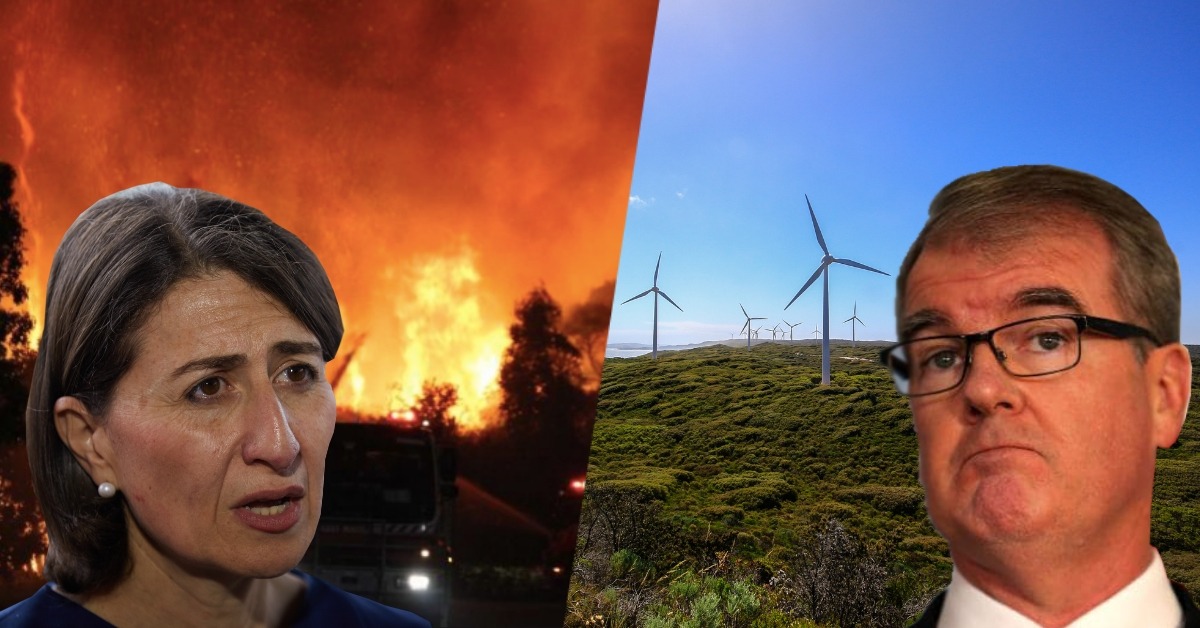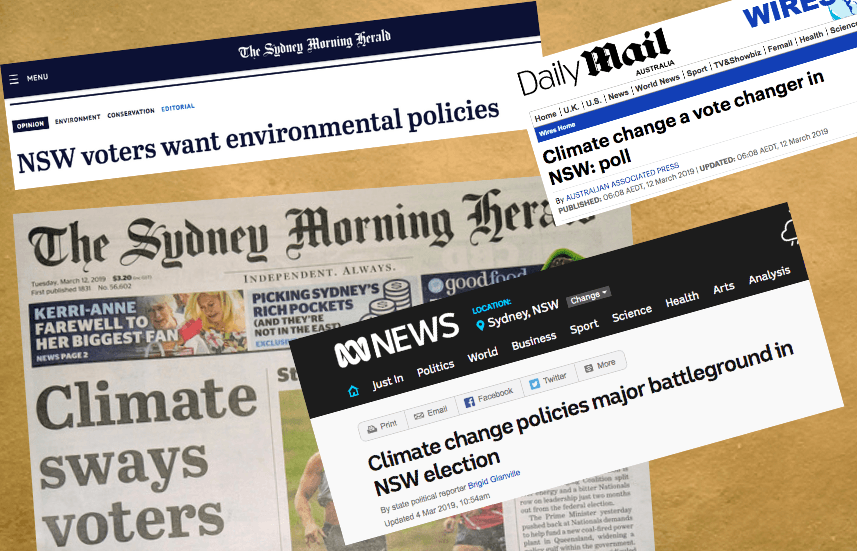The Berejiklian government has been put on notice, and the lesson for them and Scott Morrison is clear; climate inaction will lose you votes. With most of the votes counted the Berejiklian Government appears set to return to power, albeit with a wafer thin, one-seat majority.

There’s no getting around the fact that it’s a disappointing result for the environment and climate. In the lead-up to election day, the people of New South Wales consistently nominated climate change and the environment as an issue that would influence their vote.
Gladys Berejiklian chose to ignore these voices. It’s not surprising after we learned that Berejiklian personally shut down plans to deal with the climate crisis, and her own climate advisers need to beg for her attention on an issue that voters consider an urgent priority.

But while the government chose to put its donors in the fossil fuel industry ahead of New South Wales residents’ concerns about climate change, many of them across the state were still able to send a message at the ballot box.
Including Greenpeace supporters, people like you. You called National candidates and demanded climate action, you turned out at pre poll to share our scorecards on where the parties stood on climate and the environment. Thousands of Greenpeace supporters shared this scorecard, we got this message out because of you. You sent over 2,000 messages to Premier Berejiklian on Facebook and twitter and over 2,500 emails to Premier Berejiklian and Energy Minister, Don Harwin. You made this a climate election.
Labor prised the Eastern Sydney seat of Coogee from the Liberal Party’s Bruce Notley-Smith in a climate backlash. An exit poll commissioned by Greenpeace found that 35 percent of voters ranked climate change and environment policy as the number-one issue that determined their vote, ahead of the economy (25 percent) and heath (12 percent).
That figure was even higher among Liberal “deserters” – those who voted Liberal in 2015 but not this time. In this group, almost half (43 percent) said climate was the most important issue influencing their vote.
But Coogee was not the only seat where the Liberals were put on notice. There were also a reprimand of Environment Minister Gabriel Upton, who held on in Vaucluse but saw a more than five percent swing to the Greens.
It was even bigger in nearby Manly, where the Liberals’ James Griffin also held on, but suffered a more than 13 percent swing to the Greens.
The election was even worse for the Nationals, with the party losing at least two seats in a direct rebuke of their mismanagement of water, which helped create the conditions for the fish kills that plagued the Darling River in January.
Yesterday Water Minister Niall Blair resigned from the ministry, citing the visceral voter backlash over the fish kills.
The Berejiklian Government didn’t seek a mandate to act on climate change, but the election results once again show it now has a clear obligation to plan for a healthy climate for New South Wales.
In a dire warning for Scott Morrison, and a slew of Coalition MPs in marginal seats across the country, one in two voters said the Federal Liberal Party’s position on climate change and the environment made them less likely to vote for the NSW Liberal party.
Unfortunately, for the environment, that was about as good as it got for Labor with their progressive energy and climate agenda overshadowed by a disastrous final week of campaigning by Opposition Leader Michael Daley.
Despite the headline result, this poll will provide cold comfort to the New South Wales’ Government’s federal counterparts. The Berejiklian government has been put on notice, and the lesson for them and Scott Morrison is clear; climate inaction is a vote-killer.
Scott Morrison ignored that message in the Wentworth by-election and the Victorian election, but maybe third time around he will get it.
The Coalition can no longer ignore what the people consistently nominate as a priority. Australians want real solutions to address the climate crisis, and are abandoning parties that don’t treat the threat with the severity it demands.
With the federal election only a couple of months away, the onus is on the Coalition more than ever to step up to the climate crisis they have played a leading role in creating.
The Australian people won’t accept anything less. If Scott Morrison is the political pragmatist he claims to be, he needs to realise that his short term political future (what really motivates him), is inextricably linked with a clean future, and healthy climate, for all Australians.


